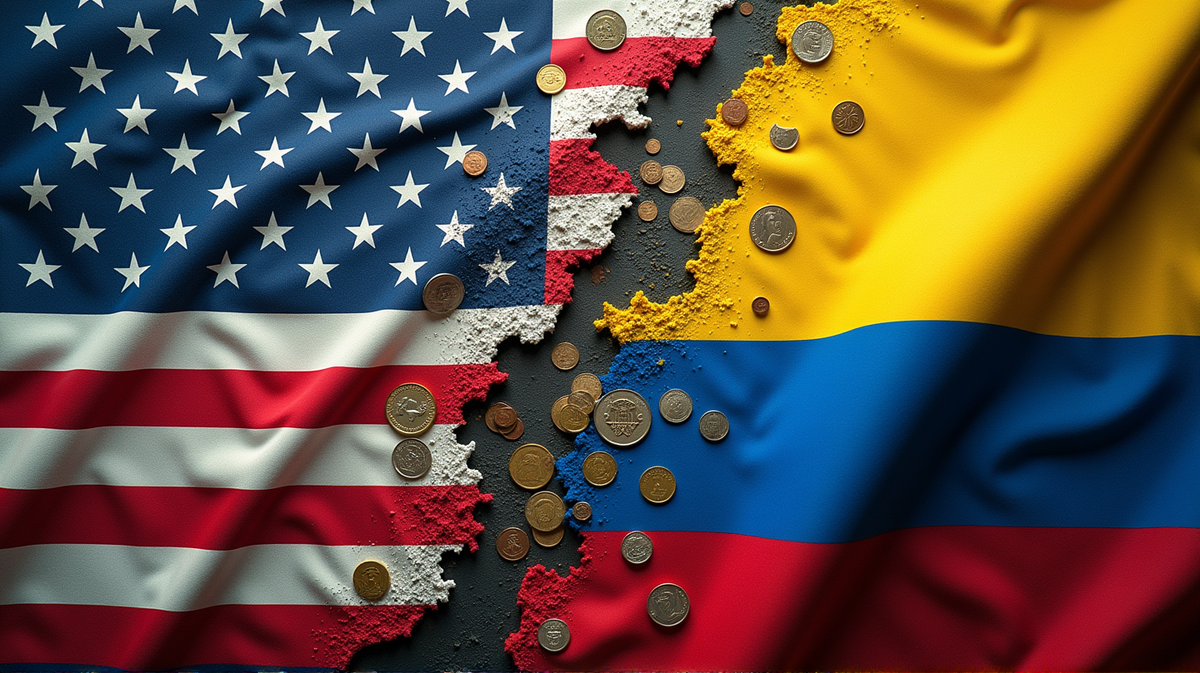The Underestimated Ripple: Colombia and the Withdrawal of US Aid
Discover how the end of US aid to Colombia could affect the nation's security, economy, and global trade relations in the long run.

In a world where international relations shape economies, Oxford Economics has stirred the pot with its recent analysis of the possible end of U.S. economic aid to Colombia. While the immediate effects might be subtle, the undercurrents suggest a brewing storm that Colombia must navigate carefully.
Understanding the Immediate Impact
According to the analysis, U.S. aid only constitutes about 0.2% of Colombia’s GDP, a seemingly small figure against a backdrop of a 7.1% fiscal deficit. In the immediate sense, the nation’s finances might not feel severe tremors from this withdrawal, indicating a capacity to weather such a shock without falling into chaos.
Yet, as stated in Colombia One, the real concern is not in the mathematics of the present but in the strategic implications that may unfurl. The withdrawal hints at potential fraying of the intricate web of bilateral ties that have supported Colombia’s fight against issues such as drug trafficking and insurgencies, a domain heavily reliant on U.S. collaboration.
The Hidden Costs of Strategic Shifts
Even if the financial wound appears to be modest, the broader canvas reveals an image turning hazy with vulnerability. Currently, exports to the U.S. account for a substantive part of Colombia’s trade, with pivotal goods like flowers and coffee in focus. These sectors might endure significant impacts if U.S. tariffs on imports echo the stringent measures recently imposed on other nations.
The apprehension has seeped into market behavior, too. Exchange rates and sovereign bond yields fluctuate, signaling a marketplace wary of uncertainties ahead. Within these financial eddies, the warning emerges starkly: the architecture of the Colombian economy faces a possible stress test as geopolitical breezes shift.
Navigating Diplomatic and Economic Terrain
The Oxford report stresses diplomacy as a beacon through the fog. With care, these tensions can be mitigated — yet the diplomatic tango between Bogotá and Washington dances on a tightrope. While encouraging diversification in export markets serves as a proactive shield, reinforcing institutional integrity remains a crucial cornerstone for enduring international headwinds.
Charting the Course Forward
Colombia’s response can serve as a model of resilience. As it stands on the cusp of challenge, the nation faces an opportunity to solidify its economic fortress. Negotiating the tightrope between preparing for immediate challenges and planning for long-term structural adjustments will be key to averting potential disasters.
In the grand chess game of global affairs, Colombia’s move now will dictate more than just an economic balance. It defines a future of strengthened autonomy and fortified trade, should the right actions unfold promptly.
A Call for Strategic Foresight
Viewing the analysis through the lens of history, we comprehend that while the immediate impact may feel like a gentle ripple, the long-term consequences could crescendo into a formidable tide. As such, Colombia stands at a crossroads: Will it sail through this storm with fortitude and prescience, or let the precarious tranquility turn turbulent?
As we await the unfolding chapters of this story, the message is clear: Preparation is not just the duty of the prudent; it is the lifeline that anchors nations in the tempest of international dynamics. Only time will reveal if foresight triumphs over complacency, and if Colombia can indeed transform this moment into a testament of resilience.





